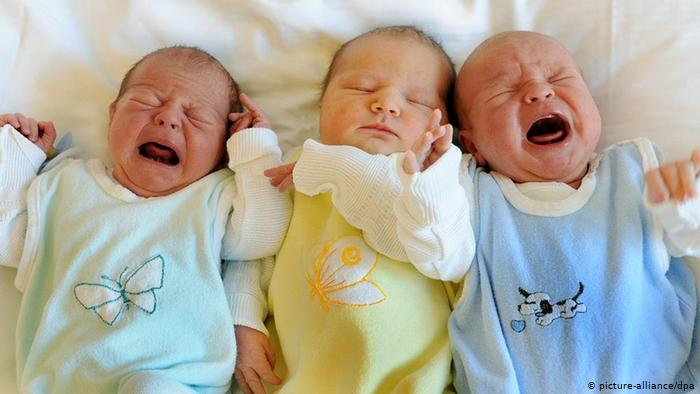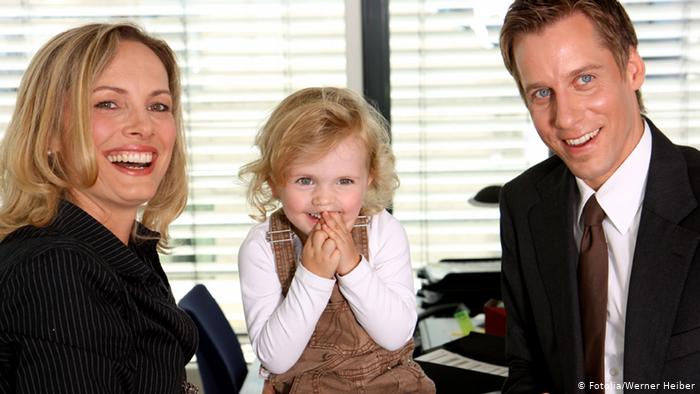
Child happiness study Many children in Germany are not happy

In international comparison, children in Germany are not particularly happy.
Frankfurt Not completely happy despite prosperity: In a large study on the worldwide satisfaction of children, Germany only finished tenth in the field of the 15 participating countries. According to a ranking, the happiest were the 12-year-olds in Romania, followed by Colombia and Israel. They were asked to rate their subjective well-being on a scale. The twelve-year-old children expressed the most dissatisfaction in South Korea.
For the study, in which the Goethe University in Frankfurt was involved in Germany, 53,000 children between the ages of eight and twelve were interviewed. The report, which was also published in Brussels on Wednesday, aims to provide insights on how to improve the lives of children around the world. The Children’s World study fills a gap in international research.
For the study, boys and girls were surveyed in Algeria, Ethiopia, Germany, England, Estonia, Israel, Colombia, Nepal, Norway, Poland, Romania, South Africa, South Korea, Spain and Turkey in 2013 and 2014.
School psychologist Klaus Seifried (Berlin) is not surprised at the German results: “Children who grow up in wealth are very demanding and therefore dissatisfied more quickly. In our society there is a lot about prosperity, consumption and leisure sensations, while for poorer countries children are about securing their livelihood. “Children in Africa or Asia are often happy, If you get something to eat every day and go to school.
In Germany, many children are rather moderately motivated to learn, said the expert from the professional association German Psychologists. "In this country, a large television and a game console in the children’s room or a new bike are more likely to make children happy."
Average agreed childcare time per week for children under 3 in day care centers (March 2014): 33.8 hours
– up to 25 hours: 17.3 percent
– 25 to 35 hours: 48.5 percent
– more than 35 hours: 34.2 percent
Average number of care days per week: 4.7
Source: Federal Statistical Office
Average agreed childcare time per week for children under 3 years in day care centers (March 2014): 31.5 hours
– up to 25 hours: 34.2 percent
– 25 to 35 hours: 33.3 percent
– more than 35 hours: 32.5 percent
Average number of care days per week: 4.7
Average agreed childcare time per week for children under 3 years in day care centers (March 2014): 42.1 hours
– up to 25 hours: 10.8 percent
– 25 to 35 hours: 21.9 percent
– more than 35 hours: 67.3 percent
Average number of care days per week: 5.0
Average agreed childcare time per week for children under 3 years in day care centers (March 2014): 39.4 hours
– up to 25 hours: 2.4 percent
– 25 to 35 hours: 31.6 percent
– more than 35 hours: 65.9 percent
Average number of care days per week: 5.0
Average agreed childcare time per week for children under 3 years in day care centers (March 2014): 34.8 hours
– up to 25 hours: 14.8 percent
– 25 to 35 hours: 23.9 percent
– more than 35 hours: 61.3 percent
Average number of care days per week: 4.7
Average agreed childcare time per week for children under 3 years in day care centers (March 2014): 35.4 hours
– up to 25 hours: 27.6 percent
– 25 to 35 hours: 19.0 percent
– more than 35 hours: 53.4 percent
Average number of care days per week: 5.0
Average agreed childcare time per week for children under 3 years in day care centers (March 2014): 38.6 hours
– up to 25 hours: 12.2 percent
– 25 to 35 hours: 26.5 percent
– more than 35 hours: 61.3 percent
Average number of care days per week: 4.9
Average agreed childcare time per week for children under 3 years in day care centers (March 2014): 44.1 hours
– up to 25 hours: 1.4 percent
– 25 to 35 hours: 27.2 percent
– more than 35 hours: 71.4 percent
Average number of care days per week: 5.0
Average agreed childcare time per week for children under 3 in day care centers (March 2014): 32.8 hours
– up to 25 hours: 29.2 percent
– 25 to 35 hours: 30.0 percent
– more than 35 hours: 40.8 percent
Average number of care days per week: 4.9
Average agreed childcare time per week for children under 3 years in day care centers (March 2014): 39.0 hours
– up to 25 hours: 11.0 percent
– 25 to 35 hours: 35.0 percent
– more than 35 hours: 54.0 percent
Average number of care days per week: 4.9
Average agreed childcare time per week for children under 3 years in day care centers (March 2014): 39.2 hours
– up to 25 hours: 6.6 percent
– 25 to 35 hours: 33.9 percent
– more than 35 hours: 59.5 percent
Average number of care days per week: 5.0
Average agreed childcare time per week for children under 3 in day care centers (March 2014): 45.3 hours
– up to 25 hours: 2.1 percent
– 25 to 35 hours: 20.0 percent
– more than 35 hours: 77.9 percent
Average number of care days per week: 5.0
Average agreed childcare time per week for children under 3 in day care centers (March 2014): 41.6 hours
– up to 25 hours: 4.5 percent
– 25 to 35 hours: 14.8 percent
– more than 35 hours: 80.6 percent
Average number of care days per week: 5.0
Average agreed childcare time per week for children under 3 years in day care centers (March 2014): 42.0 hours
– up to 25 hours: 12.9 percent
– 25 to 35 hours: 6.6 percent
– more than 35 hours: 80.5 percent
Average number of care days per week: 5.0
Average agreed childcare time per week for children under 3 years in day care centers (March 2014): 34.2 hours
– up to 25 hours: 23.2 percent
– 25 to 35 hours: 30.4 percent
– more than 35 hours: 46.3 percent
Average number of care days per week: 4.9
Average agreed childcare time per week for children under 3 in day care centers (March 2014): 44.2 hours
– up to 25 hours: 4.7 percent
– 25 to 35 hours: 4.8 percent
– more than 35 hours: 90.5 percent
Average number of care days per week: 5.0
Average agreed childcare time per week for children under 3 years in day care centers (March 2014): 37.6 hours
– up to 25 hours: 15.7 percent
– 25 to 35 hours: 28.5 percent
– more than 35 hours: 55.8 percent
Average number of care days per week: 4.9
The study made it clear that children experience great differences in their perception. In European countries, they are reported to be happier with their friendships, while children from African countries tend to be happier with their school life. Children in Northern European countries on the other hand, they are particularly dissatisfied with their appearance and self-confidence.
Study leader Sabine Andresen from the University of Frankfurt said about the nationwide results: “Children in Germany are highly satisfied with their friends. With regard to adults, it is important to them that they are taken seriously and included. In general, the well-being of the twelve-year-olds decreases, especially girls are less satisfied with their looks. "
RELATED ITEMS
-

Study: children are at risk of poverty in Germany, currently Germany, dw
Bochum researchers calculate a significantly higher risk of poverty for single parents and families than in previous studies. The basis is a new method,…
-

Fit in everyday life: study proves: healthy eating makes children happy
von BUNTE.de Redaktion 04 January 2018 at 07:10 a.m. We all know that fruit and vegetables are important for children’s health. But researchers have…
-

Mentally handicapped children and cbd – new study – leafly germany
Author: Gesa Riedewald Can Help Children with Reduced Intelligence who have abnormal behavior such as physical aggression and CBD…
-

Most parents in Germany still think in old models: the man works, the woman looks after the children. Only the east ticks differently, like one…
